Yasujirō Ozu | 2hr 20min

The domestic melodrama of Tokyo Twilight is so morose by Yasujirō Ozu’s standards, its darkness seeps into almost every corner of his meticulous, homely interiors. Shadows and silhouettes lend an expressionist edge to his mise-en-scène, enclosing the Sugiyama family in tight frames of regret and silence, while outside, bitter winds whip estranged lovers overlooking bleak, smoggy harbours. Even Setsuko Hara’s typically radiant face hangs heavy as young housewife Takako, returning to her father Shukichi’s house with her baby Michiko after fleeing an unhappy marriage. It is her sister Akiko who seems to carry the greatest burden though, weighed down by a guilty secret that drives her to seek small loans from neighbours with little explanation.
For Shukichi, the sharpest pain of all lies in watching his daughters suffer, yet remaining powerless to ease their burdens. “I pressured you into marrying Numata,” he laments to Takako, while Akiko’s evasive answers to his probing questions leave him bewildered. The death of a third child who was killed in a mountain climbing accident some years earlier has also marked this family with unspoken grief, and the more these women dig into their past, the deeper this sorrow runs. A mysterious woman whom Akiko meets one evening in a mahjong parlour seems to know an uncanny amount about the Sugiyamas, though her insistence that she’s an old neighbour doesn’t sit quite right. Takako wastes no time in uncovering the truth – this stranger is Kisako, their long-lost mother who abandoned them as children for an affair with Shukichi’s assistant.
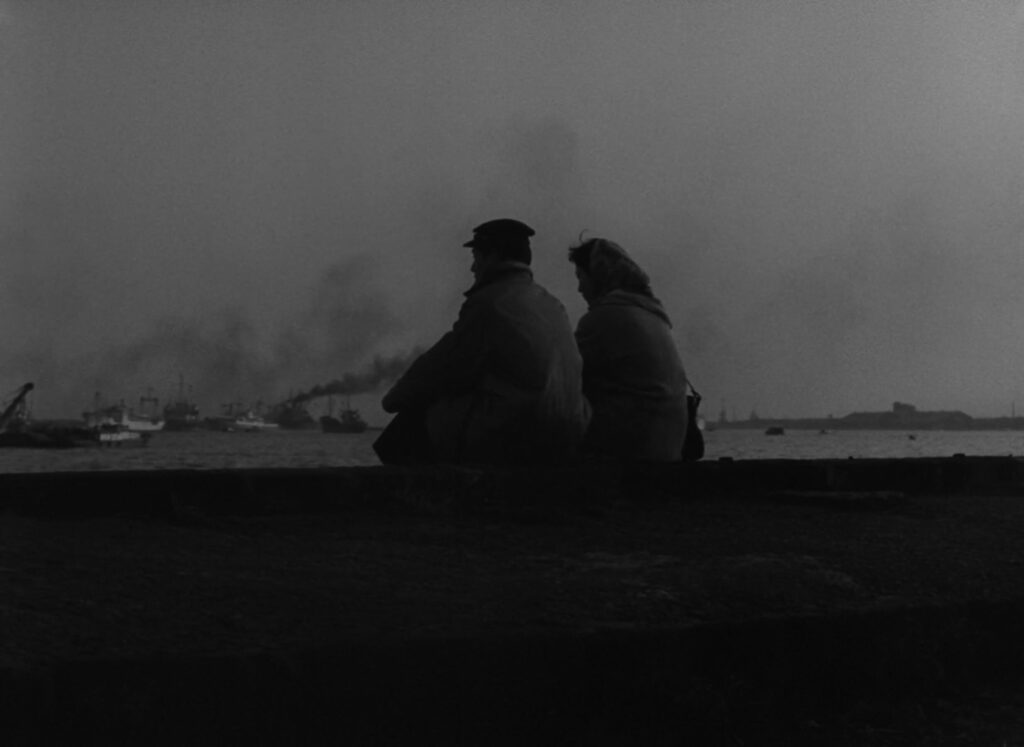
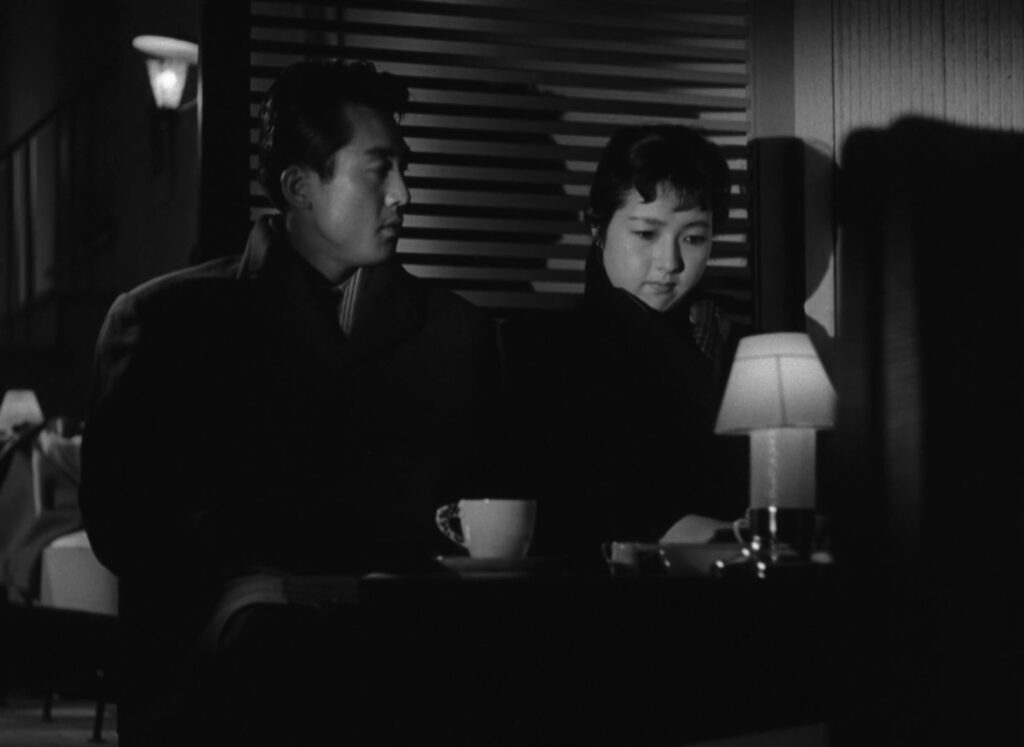
Ozu’s technical craftsmanship behind the camera is only matched by his tremendously layered character work, weaving multiple tragic threads through this story of betrayal and misfortune. Times of the day would often feature in his film titles, such as Good Morning and An Autumn Afternoon, though Tokyo Twilight is an especially apt name given its symbolic implication of a setting sun. Life’s daily rhythms may persevere through his pillow shots of passing trains and commercial signage, yet an uneasy dread lingers over the Sugiyama family, stretching across each frame with foreboding inevitability.
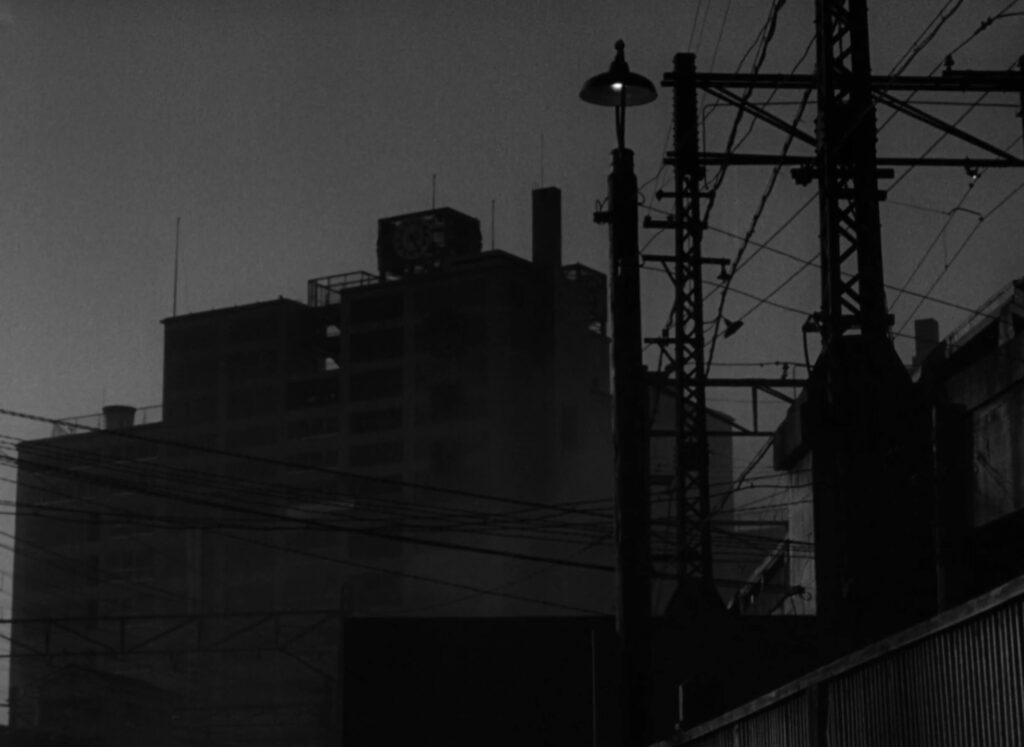
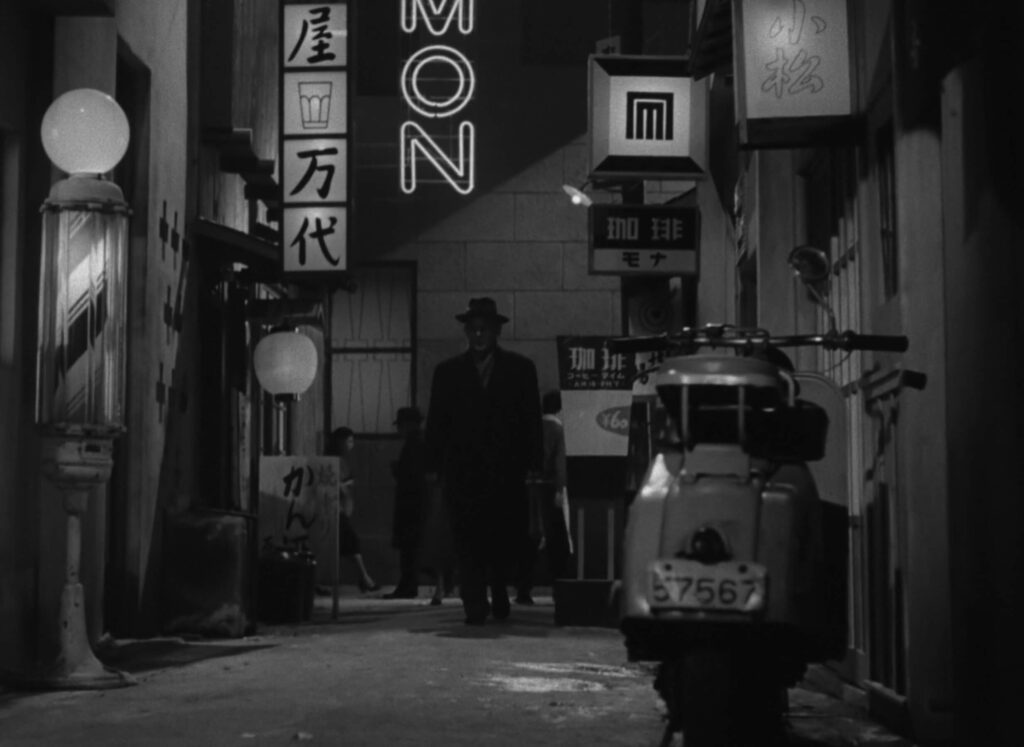
Ineko Arima’s delicate, downcast performance as Akiko particularly embodies this apprehension, subtly exhibiting signs of depression in her weary detachment from the world. After spending the first 45 minutes of the film searching for her elusive boyfriend Kenji, she runs into him at a local bar and finally shares her closely guard secret. She is pregnant with his child, he learns, before callously washing his hands of any responsibility. Under a grey sky, Akiko’s hunched figure sits alone, before venturing into a shady establishment where she is unlucky enough to encounter a policeman.
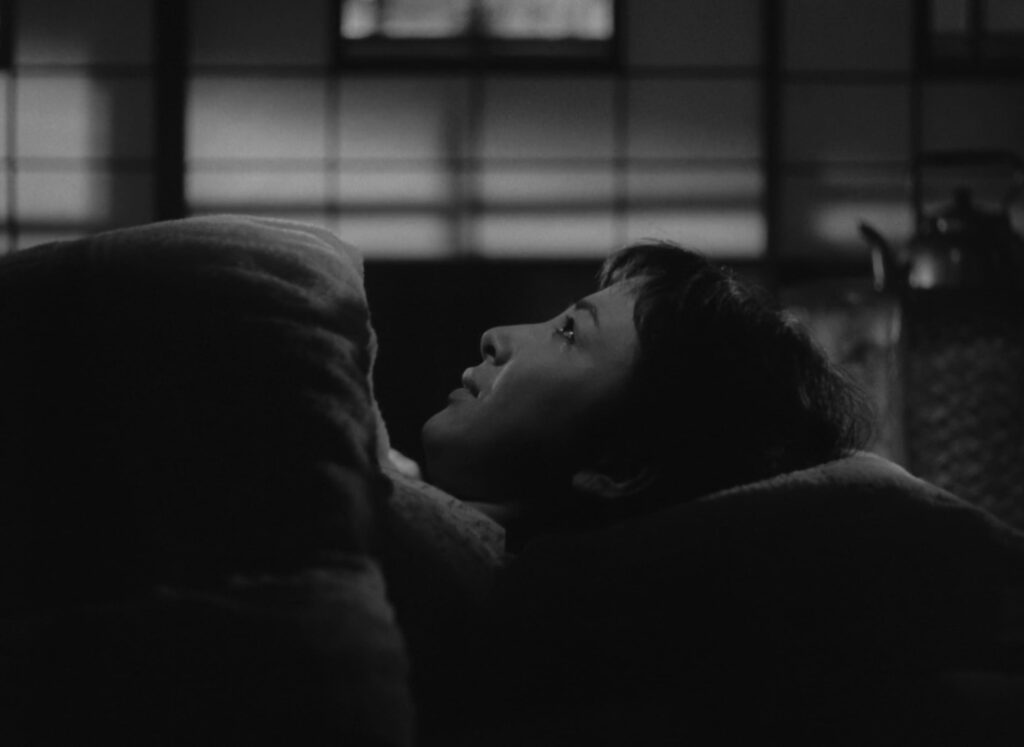
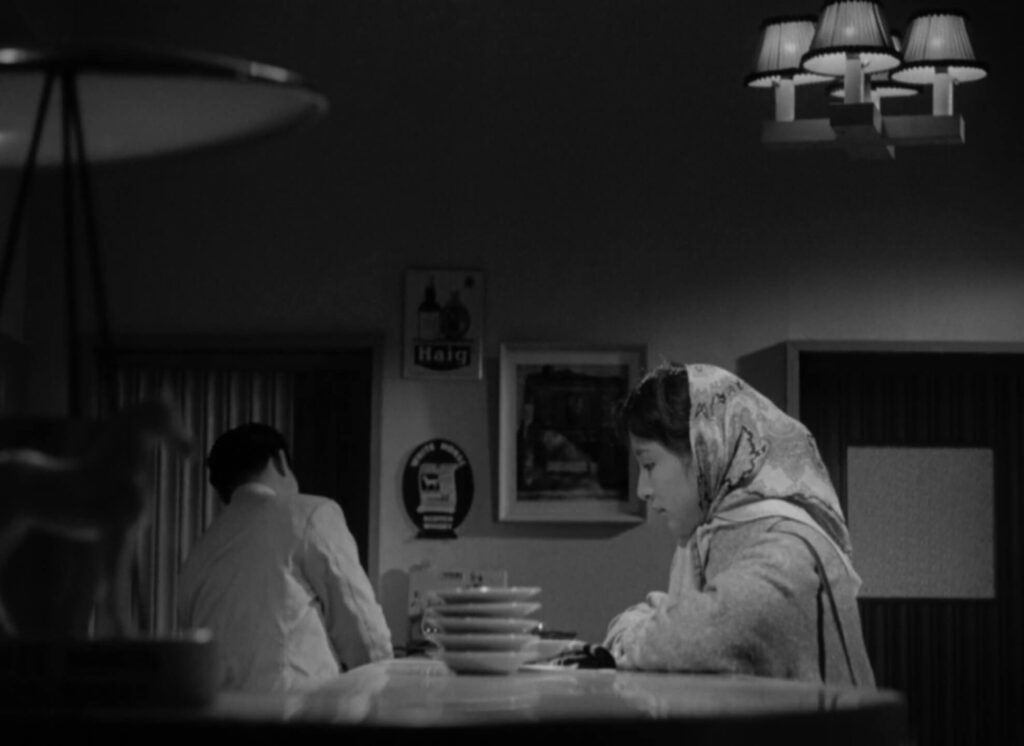
For what crime exactly is she arrested though? Nothing serious, the officer explains to Takako, but “a girl shouldn’t stay out late alone for any reason.” Huddled against a wall, she is framed just off-centre in one of Ozu’s more melancholic compositions, visually obscured by furniture, a kettle, and a telephone. This despairing shot is later rivalled only by the dark, narrow doorway which encloses Shukichi and his daughters upon their return home, where Akiko is harshly reprimanded. Isolated from the world, her boyfriend, and her family, the young woman reaches a painful conclusion – abortion seems to be the only option.
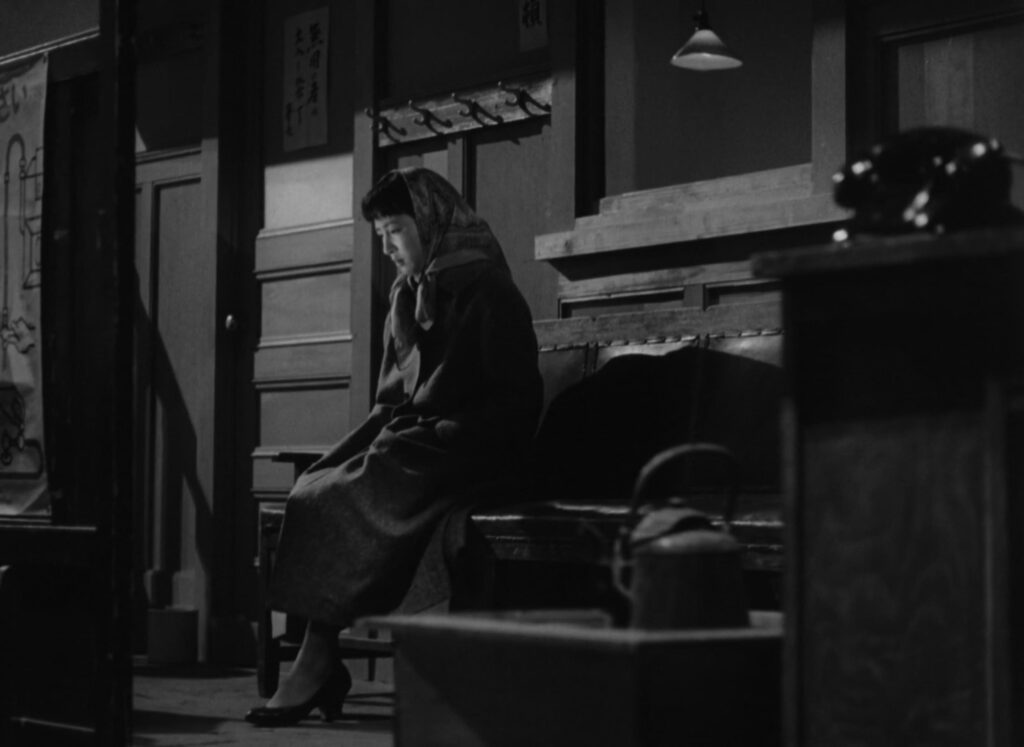
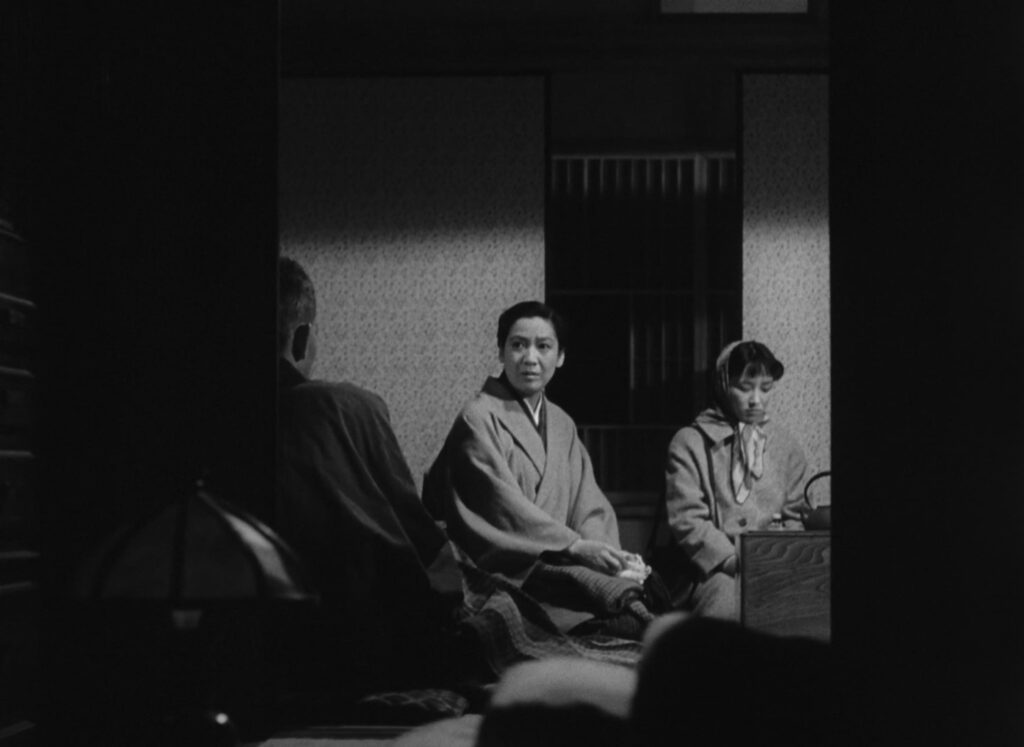
The narrative ellipsis Ozu employs to skip over the procedure itself expresses considerable restraint, resisting the gratuitous sensationalism of such difficult subject matter. Instead, he shifts focus to the emotional aftermath at home, where Akiko shares a warm moment with her niece Michiko and weeps. She never wants to be wed, she professes, and even her sister can hardly provide comfort given the discontent of her own marriage. Spiralling into bitter despair, Akiko angrily confronts her mother Kisako for the “foul blood” running through her veins, and lashing out at Kenji for his belated compassion – before recklessly stepping into the path of an oncoming train.
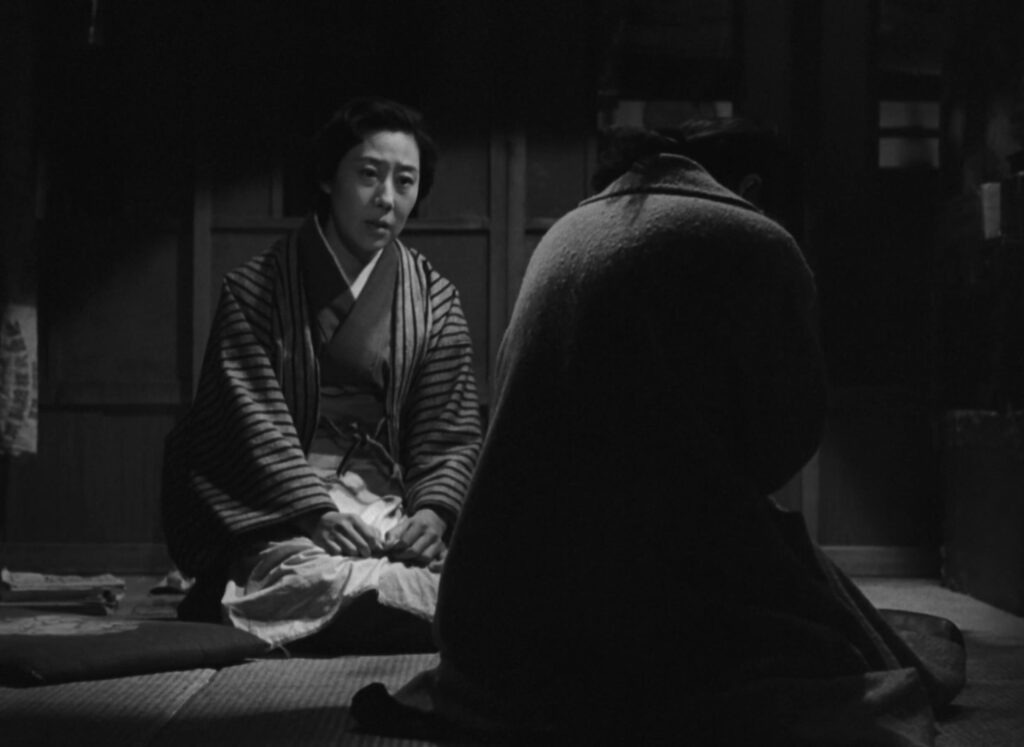
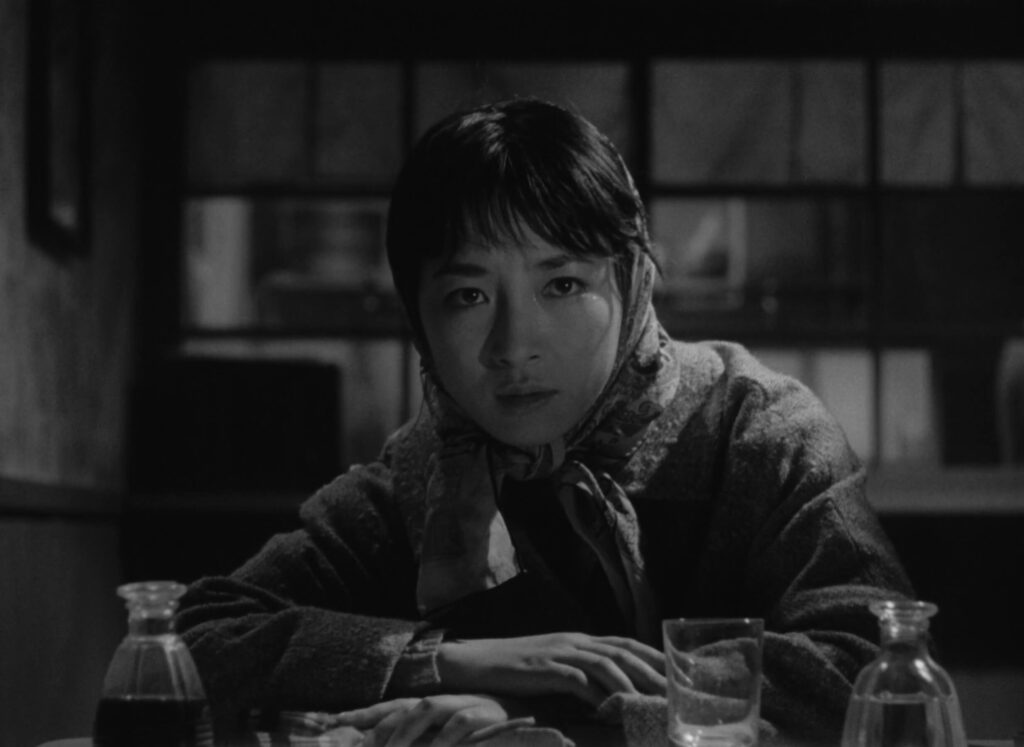
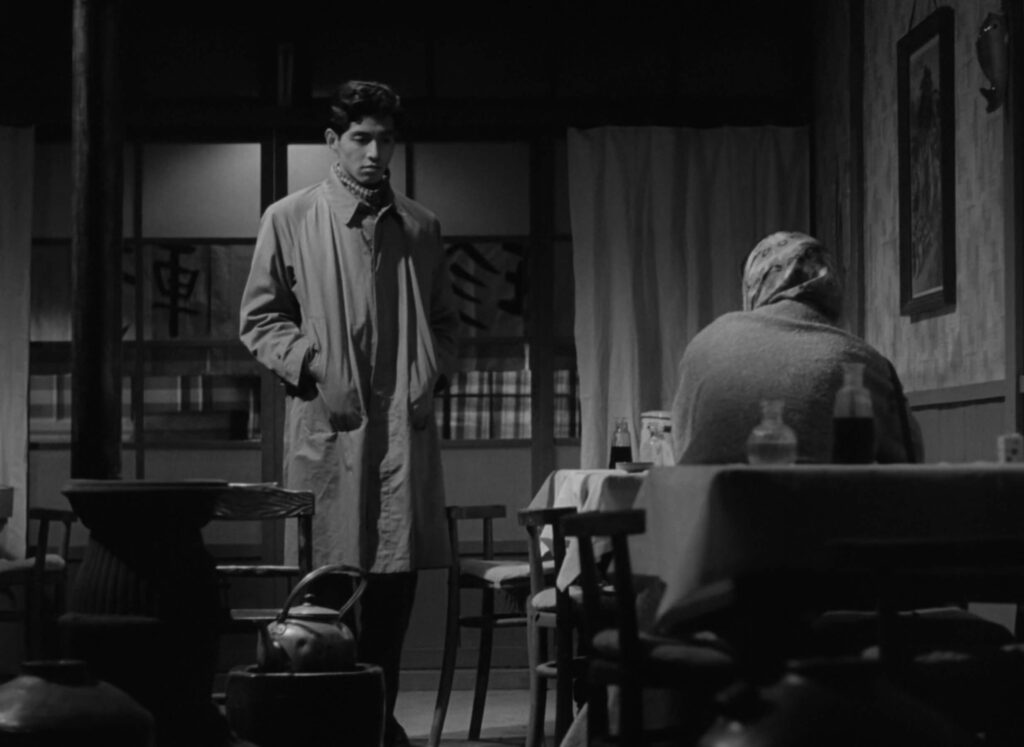
Once again, Ozu’s ellipsis unfolds Akiko’s direct suffering offscreen. “I want to start my life over again from the beginning,” she bemoans, broken both physically and mentally, before one final ellipsis quietly passes over her death. In fact, we only learn of this development in the following scene when Takako brings the news to Kisako, partially laying the blame at her feet. The collective torment on display may very well be the emotional nadir of Ozu’s entire filmography, as not only do we witness profound heartache shared among every living member of the Sugiyama family, but also how they push each other away.
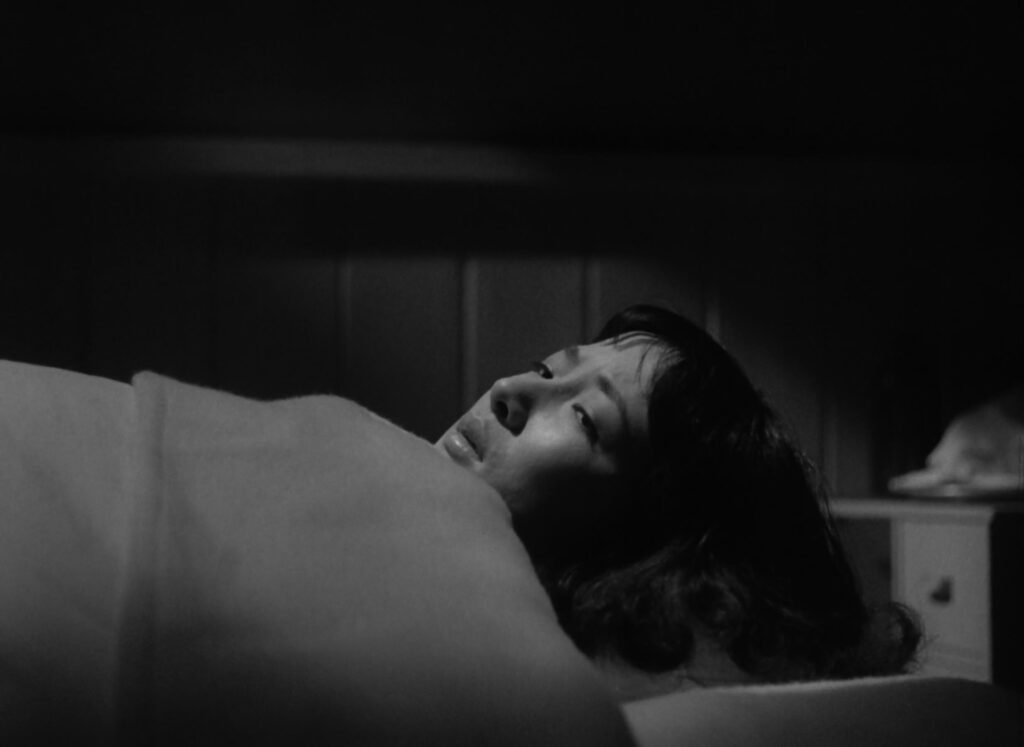
Pillow shots of messy, narrow alleyways outside Kisako’s mahjong parlour accompany her decision to move away from this gloomy city once and for all, clinging to the hope that Takako will accept her invitation to say goodbye at the train station. Waiting in her compartment, she leans out the window several times, as Ozu’s tense, deliberate editing heightens our anticipation for a possible reconciliation. With her daughter never arriving though, the scene ends on an unresolved note, its discomfort ironically amplified by young, flag-waving patriots singing a proud anthem.
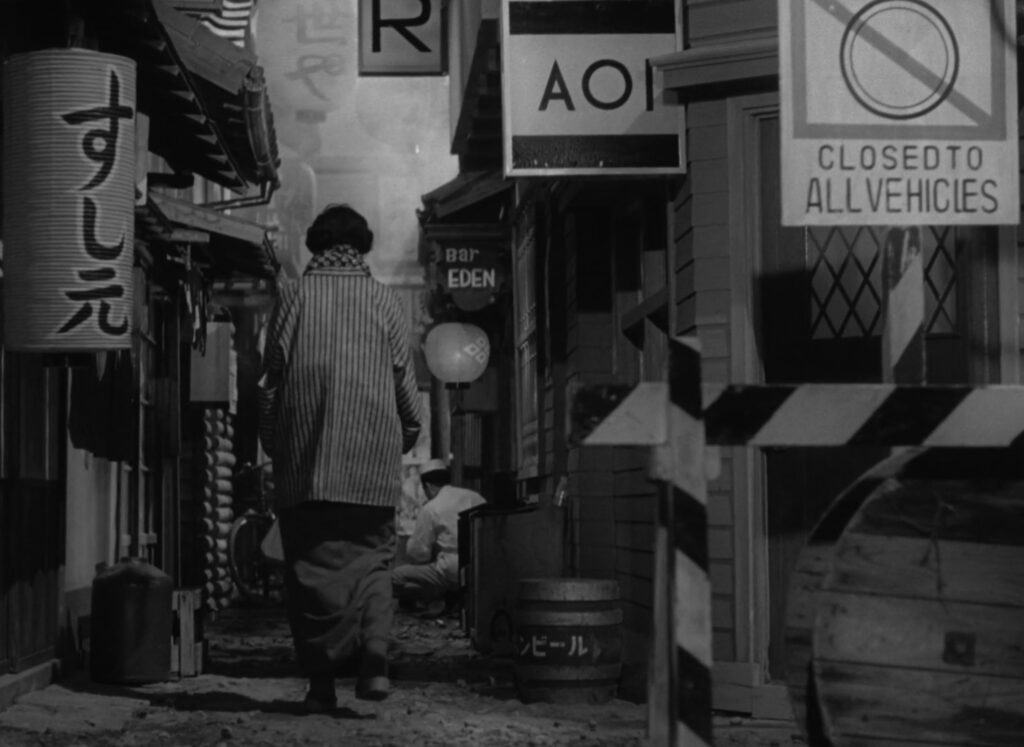
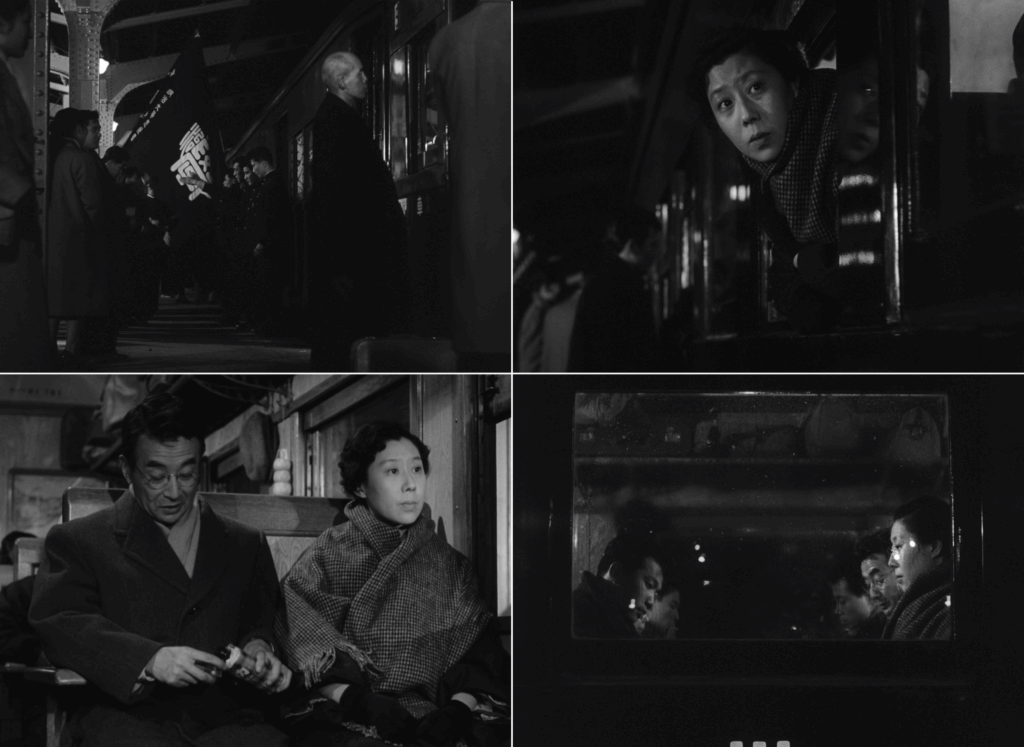
Even after disowning her mother, the path that Takako ultimately chooses is still one of tears and turmoil. “I don’t want Michiko to feel the way Akiko did,” she reflects, packing her bags to return to her miserable marriage. “I see now that a child needs the love of both parents.” Shukichi insists that he will be fine on his own, and Ozu seems to agree, letting him briefly pause his morning routine the next day to pick up Michiko’s rattle, tenderly examine it with a smile, and pass it to his granddaughter. It isn’t quite hope that Tokyo Twilight offers with the rising sun, nor closure. Rather, it is a small, wordless acceptance that Ozu’s world doesn’t stop – not for death, grief, nor the anguished unravelling of a family.
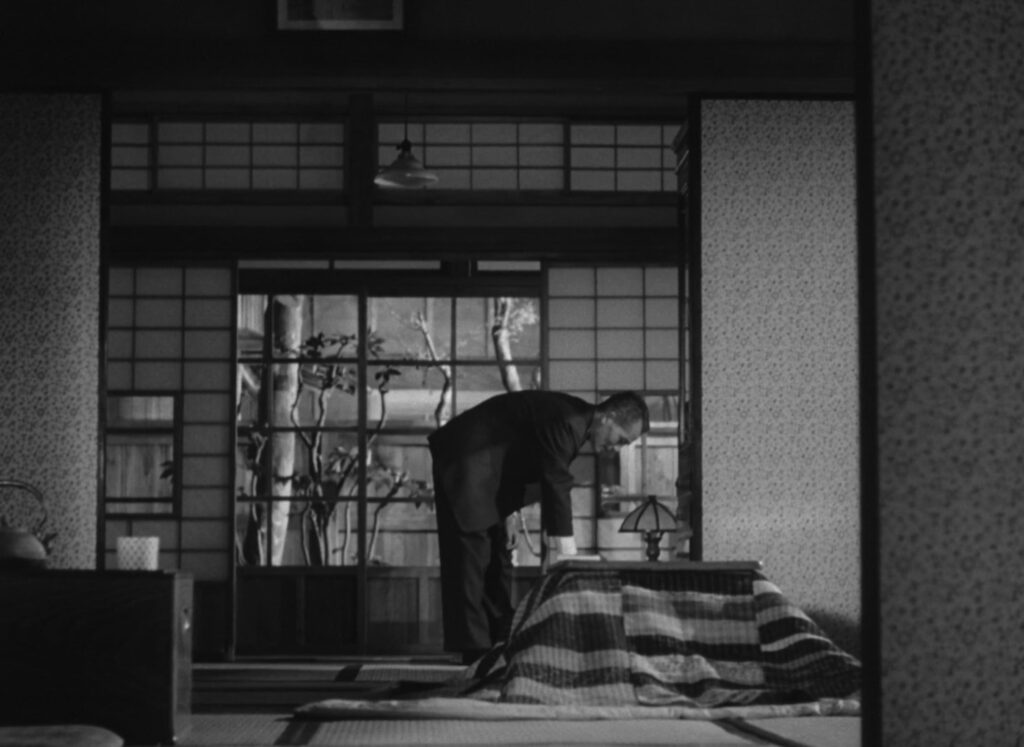
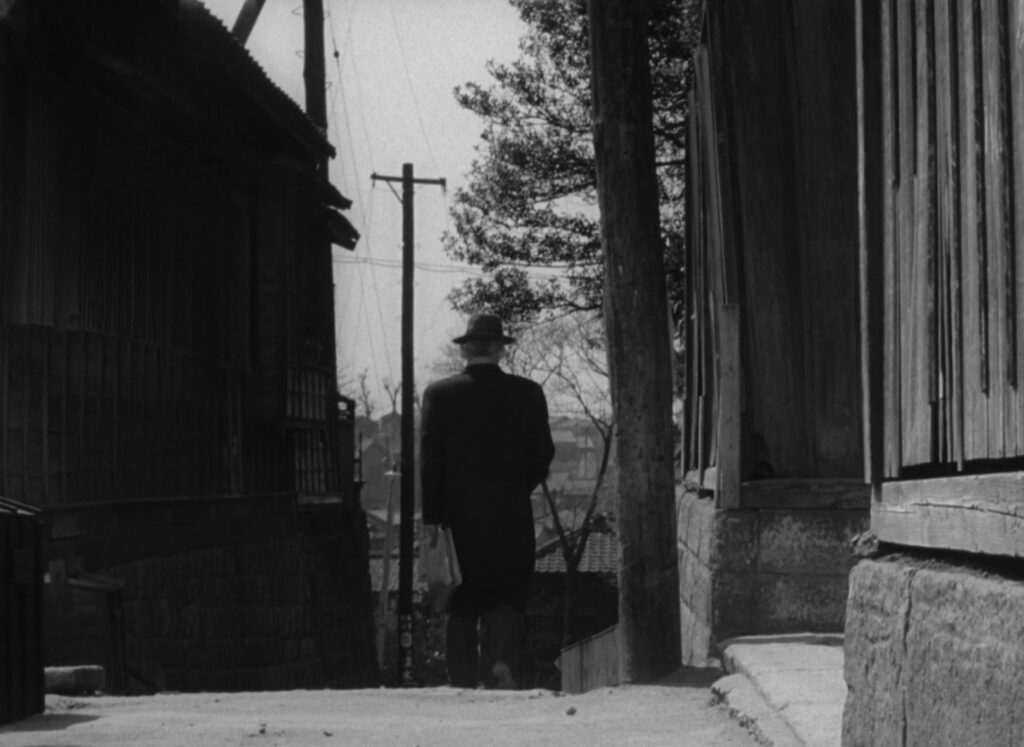
Tokyo Twilight is currently streaming on The Criterion Channel.

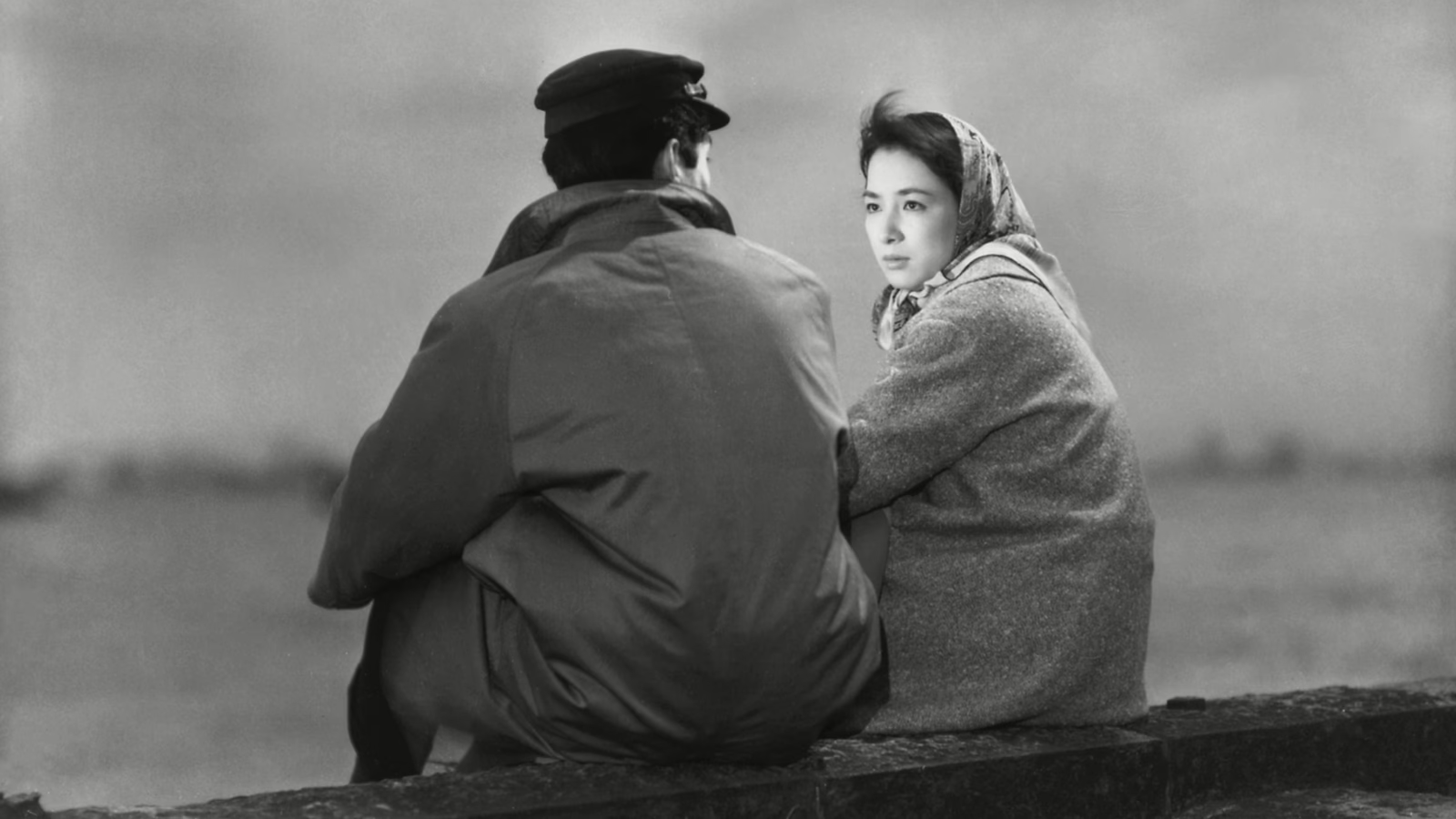
Your blog is a treasure trove of valuable insights and thought-provoking commentary. Your dedication to your craft is evident in every word you write. Keep up the fantastic work!
Thanks Deondre Bogan, very much appreciate it!